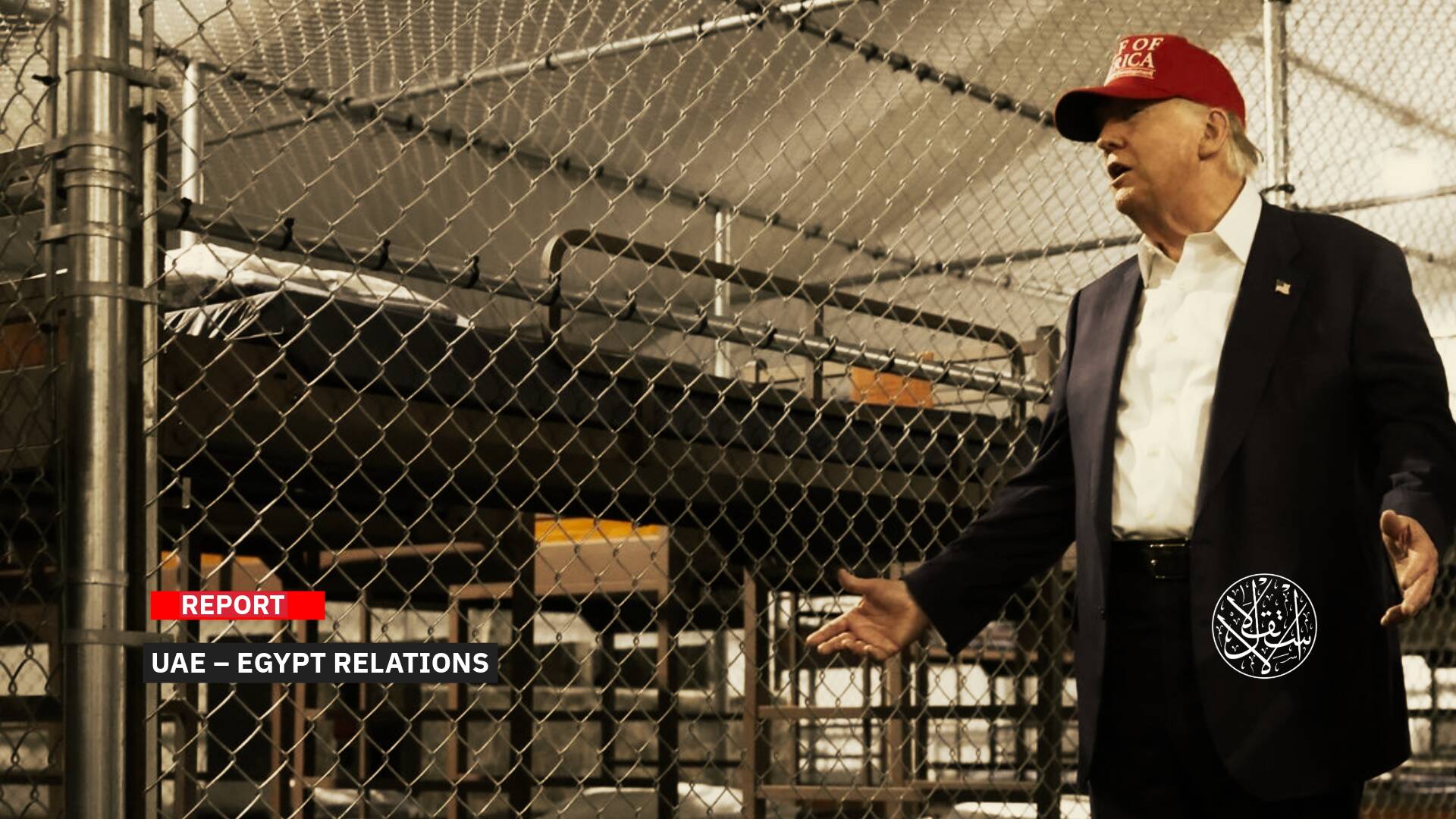Real Heroes; Stories of Imaginative Success by Refugee Paralympic Team in Tokyo 2020
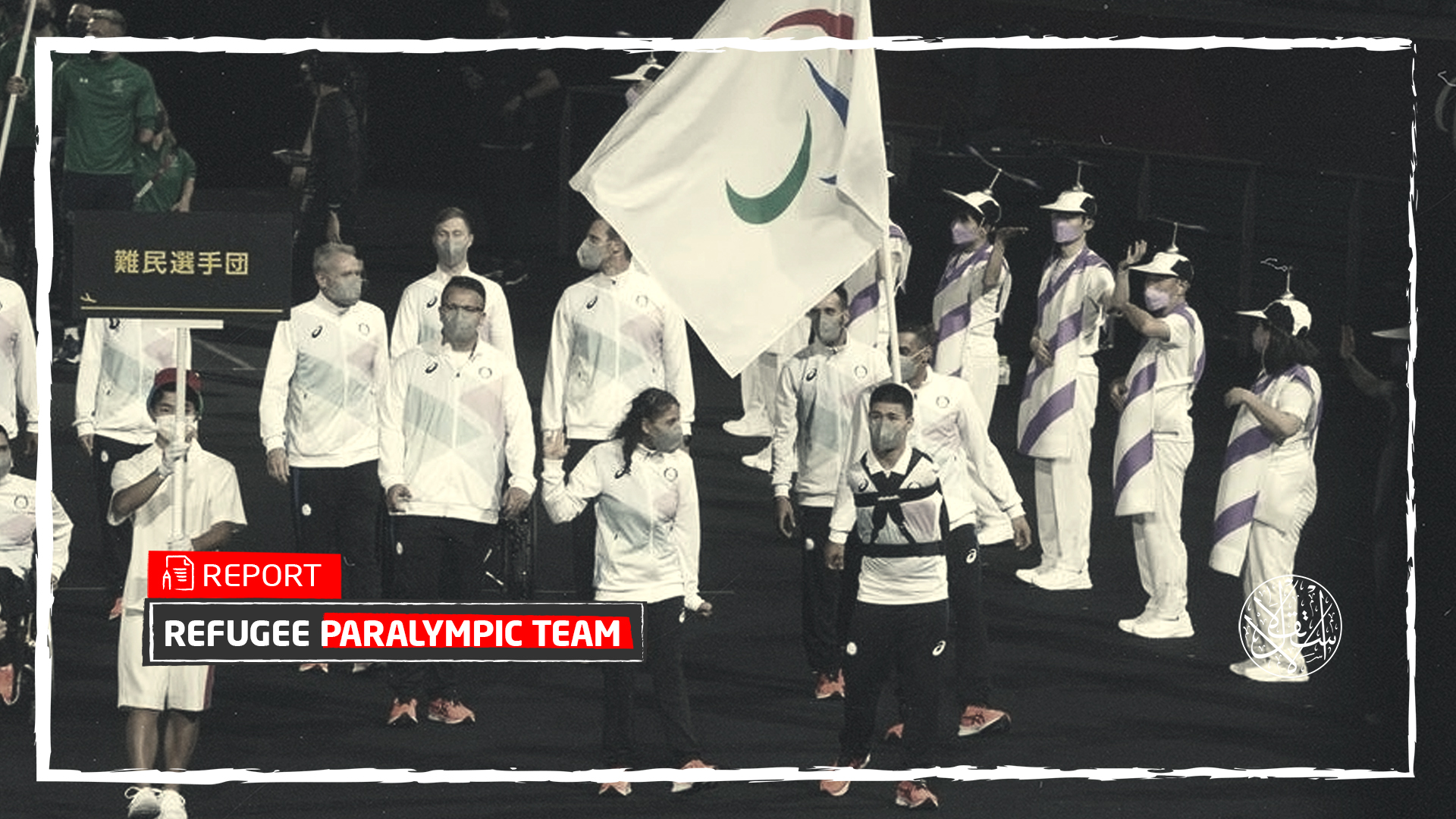
Carrying the hopes of more than 82 million refugees around the world, the Refugee Paralympic Team, championed by 6 courageous Paralympians, will be taking on the mission in the Tokyo 2020 Paralympic Games.
In a press release that the UNHCR published on December 10, 2019, the sporting world, represented by the International Olympic Committee (IOC) and more than 80 entities, have pledged with the UNHCR and the UN Refugee Agency to “provide sporting opportunities to young refugees.” With about 12 million people living with disability among the world’s refugees, it comes to no surprise for the International Paralympic Committee (IPC) to be part of this “pledge” to provide better opportunities for these disabled refugees.
The 2016 Summer Paralympics in Rio witnessed the first ever refugee team named “Independent Paralympic Athletes,” that had only two participants in it; Ibrahim Al Hussein and Shahrad Nasajpour, both of whom are revisiting the Paralympic Games again in Tokyo.
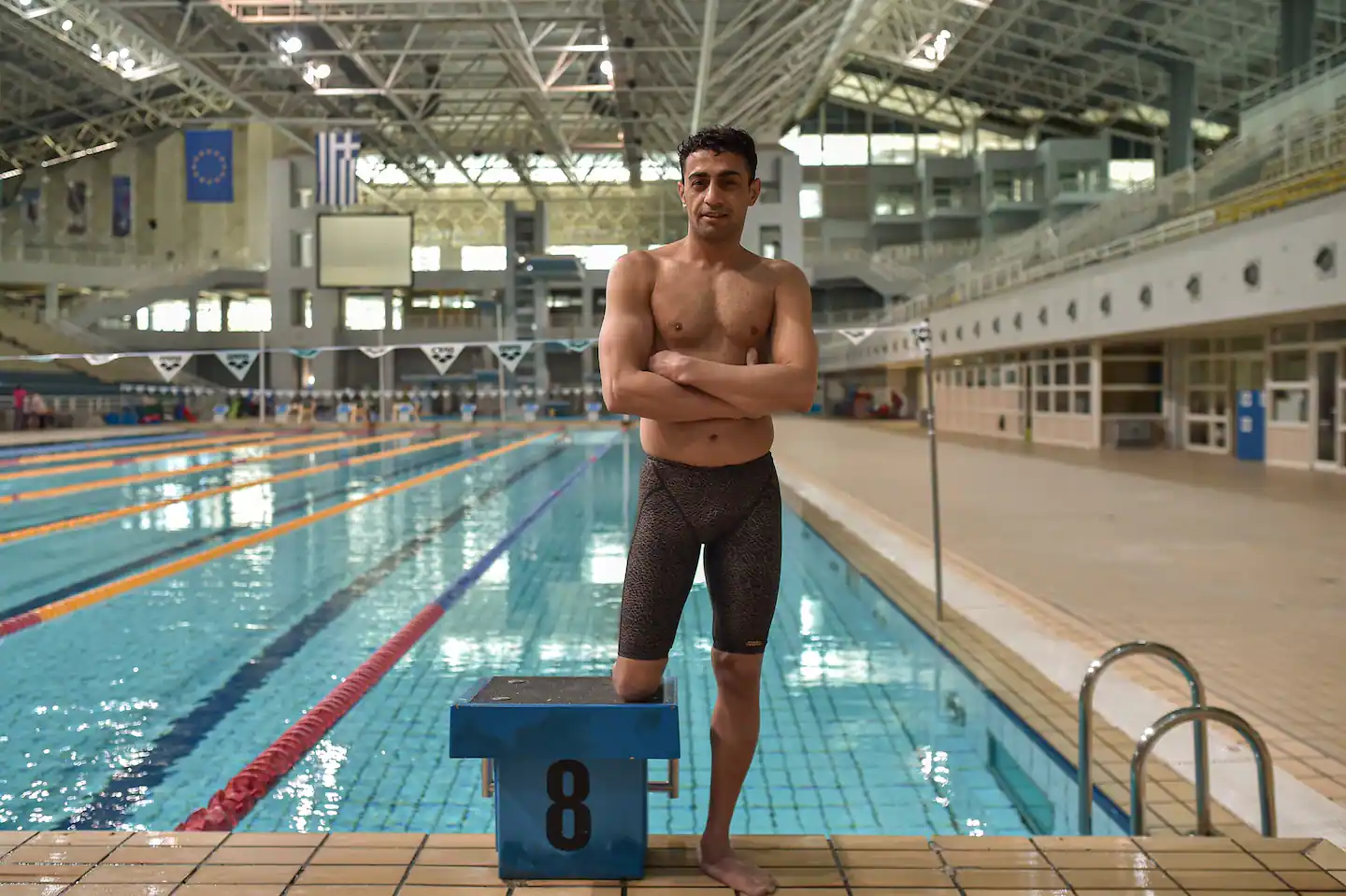
Suffering and Struggle
Our first protagonist’s story took a major life-changing hit amid the drastic events of the Syrian civil war. In 2012, Syrian Paralympic swimmer Ibrahim Al Hussein was seeing off a visiting friend of his who was returning home when he was shot by a sniper right in front of Al Hussein.
Lying on the ground and crying for help, Al Hussein’s friend was in dire need for rescue. Al Hussein rushed in for the call despite the ongoing threat; “I decided I had to help because I knew I would have never been able to forgive myself watching him die in the middle of the street,” Al Hussein told IPC.
As Al Hussein went to give a hand to his injured friend, a bomb exploded, causing the loss of Al Hussein’s lower right leg, and damaging his left ankle badly, blasting away his childhood dream of being a top athlete.
Al Hussein and his friend survived and their journey to find a safer place for treatment started in three months, where they saw themselves making it to Istanbul, Turkey, and eventually to Greece with all the adversities of this voyage.
Going back into sports for Al Hussein was not easy, and was a big challenge, according to his own words.
Al Hussein found his way back to swimming through the 2004 Olympics and Paralympics of Athena, after years of searching for a place to take him in. In six months, Al Hussien won a swimming championship in Athens and later grabbed a gold and silver in the Greek National Swimming Championship.
The United Nations High Commissioner for Refugees (UNHCR) reached Al Hussien and asked him to be the representative of refugees from around the world in the Rio 2016 Paralympics.
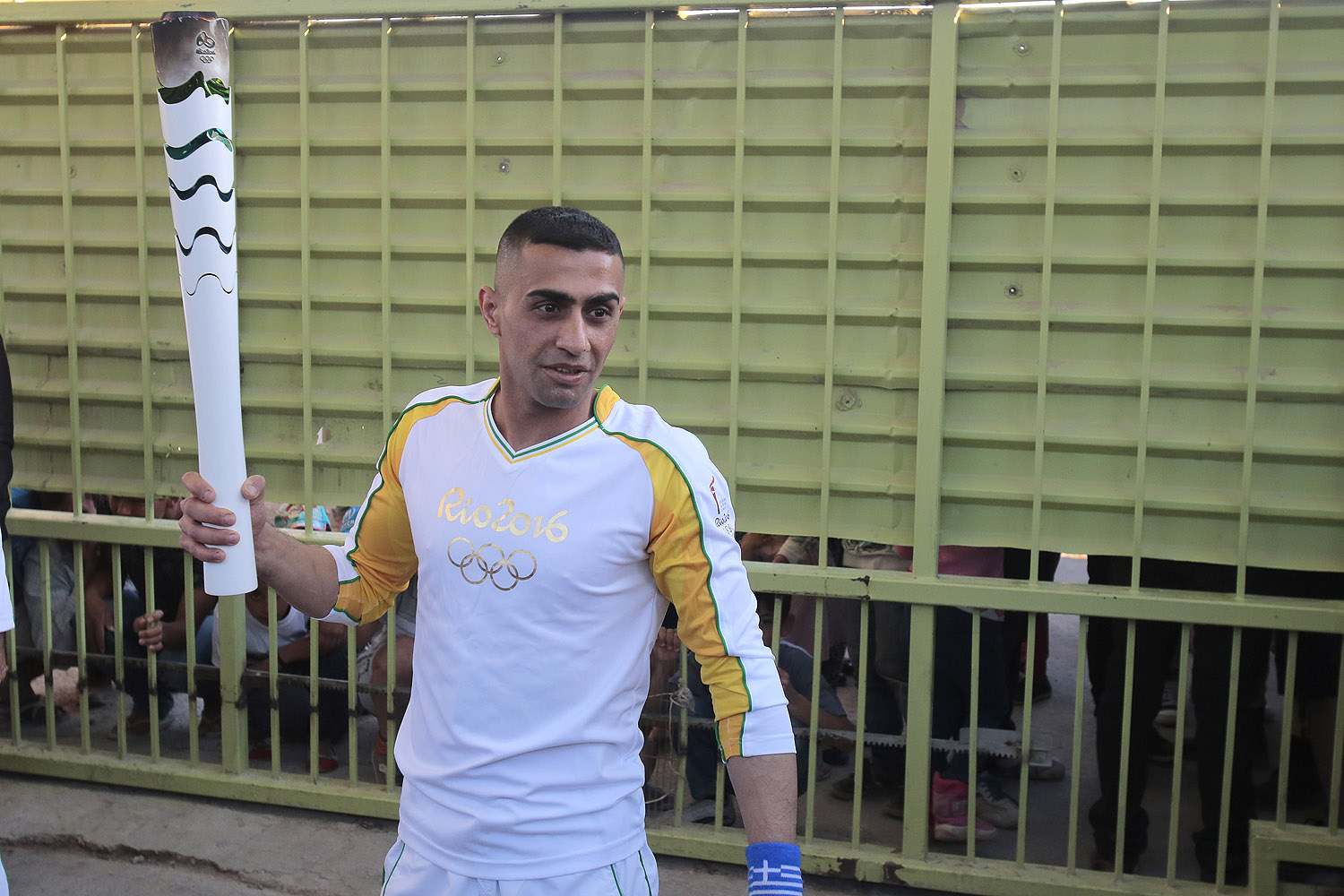
“There was a lot of suffering and struggle on the journey,” says Al Hussien.
The friend Al Hussien saved is now a father of three children, while Al Hussien has obtained the honor of representing millions of refugees in the most prestigious sport competition.
Ibrahim Al Hussein didn’t know what his future held when he left his home in Syria.
— UNHCR, the UN Refugee Agency (@Refugees) August 28, 2021
Now, he is swimming at the @Paralympics, where he will represent refugees all over the world. #ChangeStartsWithSport pic.twitter.com/KuPOoBHmcK
Hexad of Champions
The Independent Paralympic Team in its second version consisted of 6 refugees from around the world. Three of whom are from Syrian origins, a Burundian, an Iranian, and an Afghan.
It comes to no surprise that each and every member of the team had their own story that went through a turmoil of events, after which participating in the Paralympic Games comes as the fruit of the labor and hard work they had to put in to make it through.
Ileana Rodriguze, Chef de Mission of the Refugee Team, explains: “All Paralympians have a story of struggle. But with refugees, you add another level of complexity to this. Seeing their attitude, and seeing how they portray their stories of hope, their courage, it is mind-blowing, even for an athlete like myself.”
Along with Ibrahim Al Hussein, Shahrad Nasajpour also made it to the Independent Paralympic Athletes of the Rio 2016.
Nasajpour was born in Iran and had to move to the US in late 2015. He was born with cerebral palsy that caused some mobility limitations on his left side.
Right after he made it to the US he emailed the IPC for a chance to participate in the Rio 2016 Paralympic Games. “I think my early e-mails helped ignite things,” Nasajpour says.
In August 2016, the IPC announced its first ever Independent Paralympic Team, where Nasajpour was chosen to compete in discus-throwing competition.
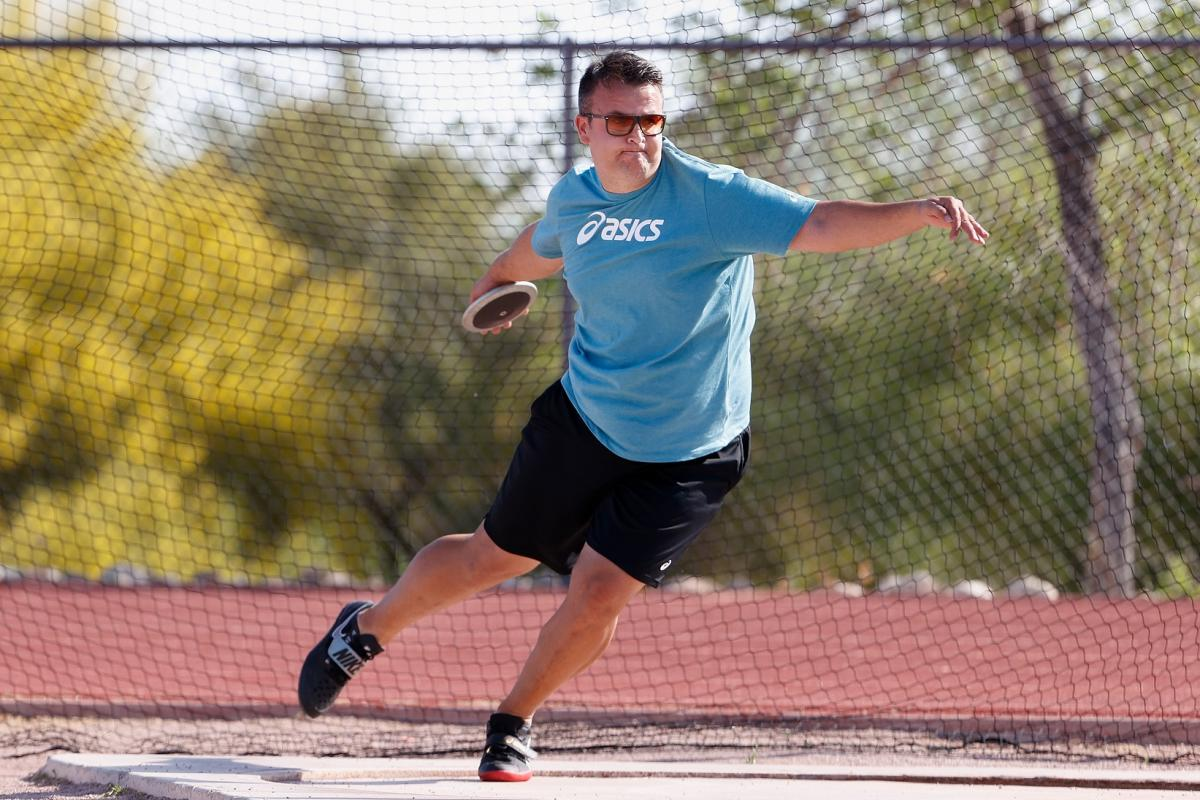
Alia Issa on the other hand carries the weight of representing millions of women refugees around the world. Issa is a second generation refugee who was born in Greece in 2001. At four years old and due to smallpox illness, Isaa ended up with brain damage that left her in a chair with high support needs.
Issa’s family had to go through tough times and shocking events as her father and older sister were diagnosed with cancer around the same time. “It took me a year to come to grips with the fact that he wasn’t there. It was a very difficult time,” Alia Issa said, describing these times.
Alia Issa’s journey with sports started only three years ago as she attended a school specialized for students with disabilities, after years of bullying and discrimination of other peers.
Her coach, Dionysios Koumparis, says sport has changed her life.
After participating in a couple of competitions in Greece and Europe, Issa now joins the Paralympic refugees team, competing in the club throwing events.
✨Refugee Para athlete #GrandPrix debut ✨
— #ParaAthletics #Tokyo2020 (@ParaAthletics) May 15, 2021
Alia Issa first got in touch with Para sports 3 years ago. Now she is a Paralympic hopeful and traveled to Switzerland in search of qualification for @Tokyo2020 .
She competed at #Nottwil2021 in the women's club throw.@Paralympics pic.twitter.com/oaVr2AutLj
Parfait Hakizimana, the Burundi-born taekwondo fighter, had to flee his country in fear that he might be shot like his mother, who was killed in the same incident in which his left arm was rendered permanently debilitated due to gunshot.
He stayed in the Mahama Refugee Camp in Rwanda, where he started his own Taekwondo club in which he trains up to 150 people in the camp.
Hakizimana’s participation in the Paralympic Games will make him the first athlete to go directly from a refugee camp to the international competition.
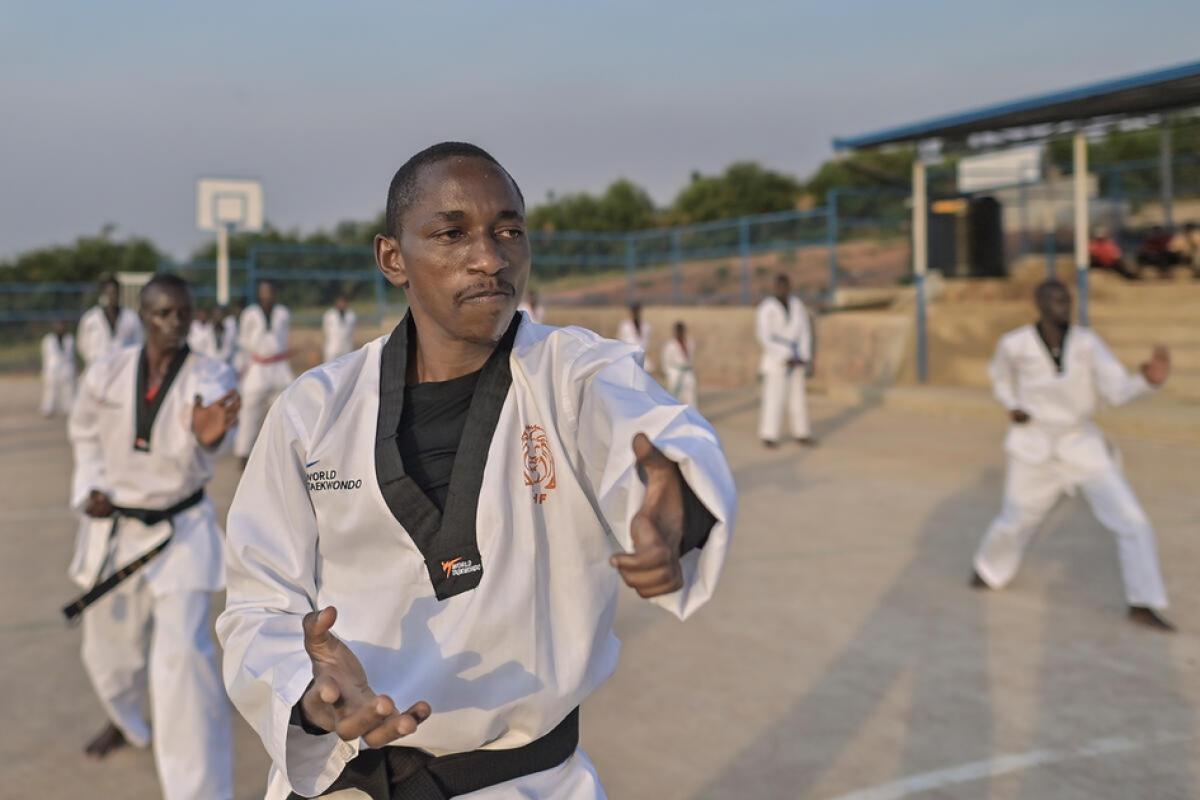
With the help of his physiotherapist, Al Khalifa started Para canoeing. He started practicing canoeing persistently and daily until he preserved his own spot at the Tokyo 2020.
The journey of Al Khalifa—even as it seems to have been getting brighter, away from all the troubles back at home—was saddened by the news of the killing of his brother back in Syria, in December 2020. Although Al Khalifa wanted to quit the Paralympics, his coach insisted that he shall continue, “You must stay in this sport because your brother will be there in the sky, and he will support you,” he told Al Khalifa.
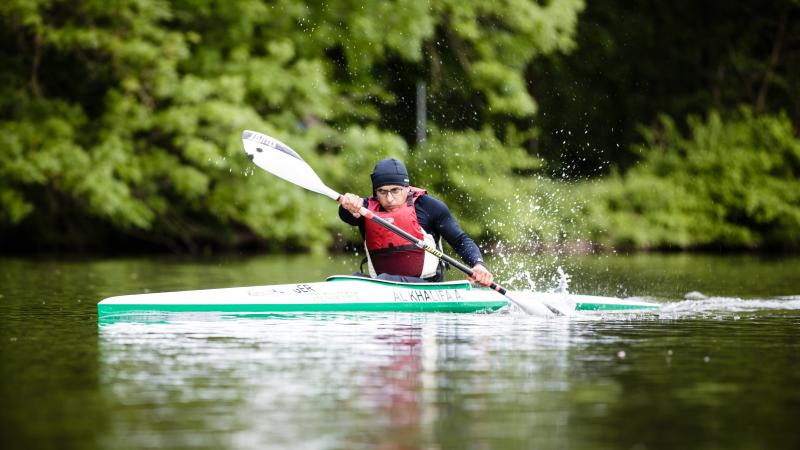
Last but not least of the refugees team, Abbas Karimi, the Afghan swimmer who was born with no hands. Abbas had to flee Afghanistan in the lookout for better future opportunities.
After an arduous travel, Karimi was able to flee to Turkey at 16 where he was able to be noticed by the UNHCR, and had him resettled in Portland in 2016.
In 2017, Karimi participated in the World Championship in Mexico where he won a silver medal in butterfly competition, a first for a refugee.
“I want to make the podium in Tokyo,” said Karimi, who is eyeing the podiums at the Tokyo 2020 Paralympic Games.
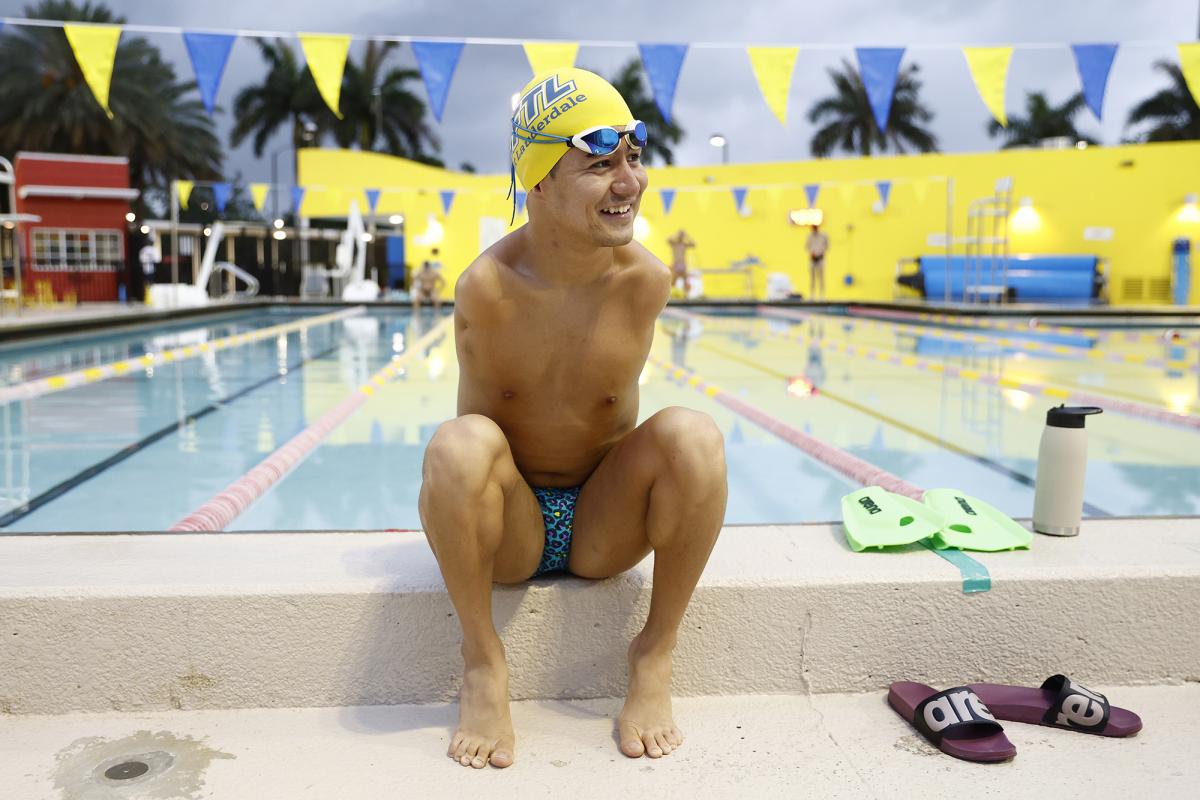
The Leader
The pillar of it all, the Chef de Mission of the Independent Paralympic Athletes, Illeana Rodriguez who was chosen by the IPC for her similar background and continuous contributions for the Paralympic Movement.

Rodriguez was a former refugee who moved from Cuba to the US. Before she moved to the US she suffered from a spinal cord injury when she was 13.
The swimming pool was the only place she felt comfortable, so she spent the rest of the time she could spare from her Architecture studies.
She participated in a couple of competitions before making it to the London 2012 Paralympic Games for the USA, where she placed 7th in 100m breaststroke.
Illeana Rodriguez obtained her masters degree in Architecture and contributed immensely as a sport design consultant and on improving accessibility to buildings, infrastructure, and recreational spaces all around the world.
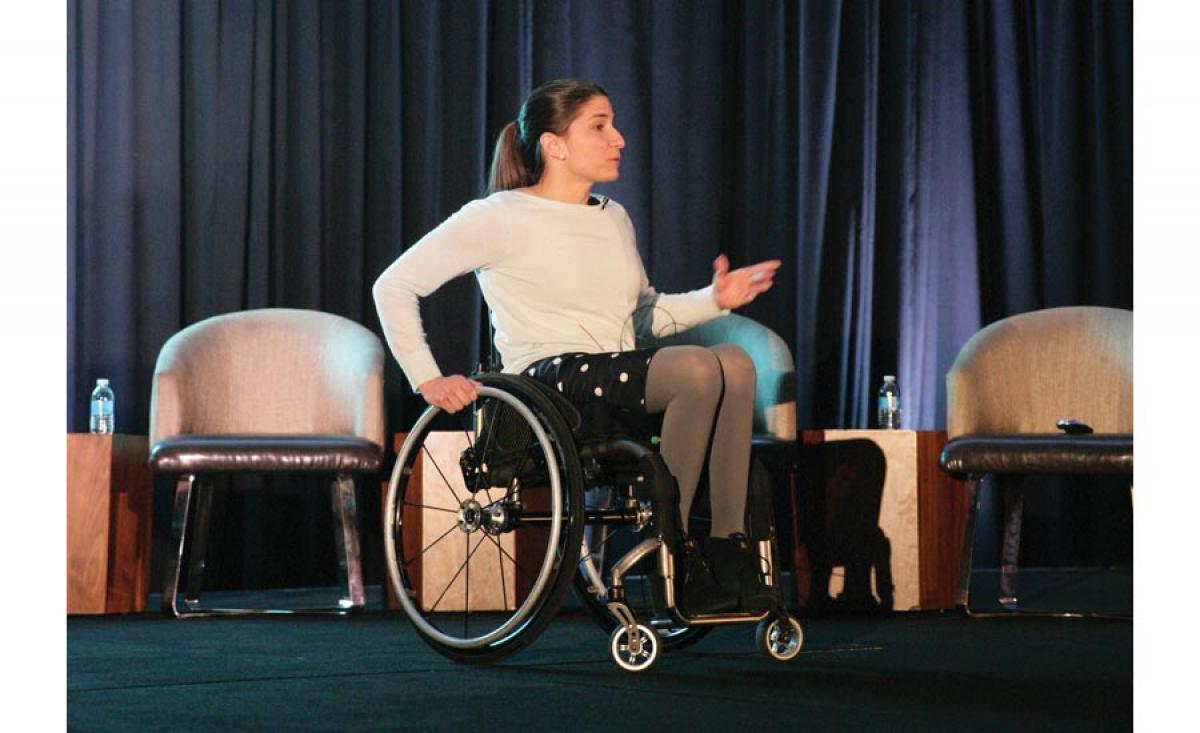
The IPC have chosen Illeana Rodriguez for the role of leading the Refugees Team, and have entrusted the Independent Paralympic Athletes to her.
The Stateless Representation
Even though Rio 2016 had an Independent Paralympic Team, it was an uncoordinated team, unlike the 6-competitors Refugee Team in the Tokyo 2020 Paralympics, that is led by Rodriguez.
The Independent Athletes category gave an opportunity for stateless competitors to take place in the Olympic and Paralympic Games.
David Rower, Western Sydney University Emeritus Professor, was quoted in a report published by Special Broadcasting Service (SBS), regarding the growing recognition of stateless athletes in international sport competitions.
“The role of sport as a social, cultural and political entity is on the rise,” Professor Rower informed the SBS News.
“You can see that the introduction of a Refugee Olympian Team as a direct insertion of politics into the Olympics around the politics of human rights, inclusion.”
Professor Rower links the authoritarian systems with sports in the meaning of how their sporting teams are in constant control to avoid the possibility of asylum claims, which is why many sporting teams are denied access to host nations.
Craig Foster, Australian retired soccer player, was quoted on SBS saying, “The time when sport purported to—or that it was necessary for sport to stand aside from issues that it deemed to be political—is over. Today, athletes are saying that they and sport need to do much more.”
In a way or another, Politics had had its say on the lives of the six Paralympian refugees, but today sport is giving them an opportunity to bond together, as Para athletes, and as refugees with similar shared experience.
Statistically, the Independent Paralympic Team members have tripled between the last Paralympic games in Rio 2016 to Tokyo 2020, which raises hopes for even more representation of the worldwide refugees in the upcoming versions of the Olympics/ Paralympics.
The Tokyo 2020 Paralympic Games is taking place from 24 August until 5 September 2021.
Sources
- Refugee Paralympic Team | International Paralympic Committee
- IPC announces six athletes to compete for the Refugee Paralympic Team at the Tokyo 2020 Paralympic Games
- A special team of refugees is making history at the Tokyo Paralympics
- Sustainability » Building the first Refugee Paralympic Team
- Ileana Rodriguez named Top 25 News Makers in infrastructure sector
- Sporting world pledge support for refugees, ahead of next week's Global Refugee Forum







